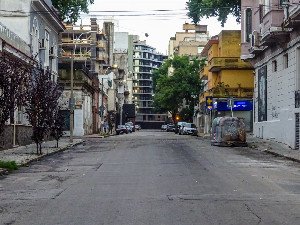Nurfadia Nurfadia, Abdulahanaa Abdulahanaa, Arifin S.
ANALISIS KEMISKINAN STRUKTURAL NELAYAN ETNIS SUKU BAJO PERSPEKTIF PEMIKIRAN IBNU KHALDUN
Introduction
Analisis kemiskinan struktural nelayan etnis suku bajo perspektif pemikiran ibnu khaldun. Analisis kemiskinan struktural nelayan Suku Bajo di Bone dari perspektif Ibnu Khaldun. Ungkap marginalisasi, ketidakadilan kebijakan, dan peran ashabiyyah dalam ketahanan ekonomi mereka.
Abstract
Abstrak: Penelitian ini bertujuan untuk mengidentifikasi penyebab kemiskinan struktural pada nelayan etnis Suku Bajo di Kelurahan Bajoe, Kabupaten Bone, serta menganalisis fenomena tersebut dalam perspektif pemikiran Ibnu Khaldun. Jenis penelitian yang digunakan adalah kualitatif dengan pendekatan ekonomi Islam. Metode pengumpulan data yang digunakan adalah observasi, wawancara, dan dokumentasi. Subjek dalam penelitian ini adalah masyarakat nelayan Etnis Suku Bajo dan akademisi bidang ekonomi syariah. Teknik analisis data yang digunakan adalah reduksi data, penyajian data, dan penarikan kesimpulan. Hasil penelitian menunjukkan bahwa: (1) Penyebab kemiskinan struktural yang dialami nelayan Suku Bajo di Kelurahan Bajoe Kabupaten Bone bukan sekadar akibat keterbatasan individu, tetapi juga dipengaruhi oleh faktor eksternal seperti marginalisasi sosial, kebijakan yang tidak berpihak, serta ketimpangan ekonomi. Pola hidup tradisional, keterbatasan akses terhadap pendidikan dan modal, serta perubahan iklim semakin memperburuk kondisi nelayan, dan (2) Kemiskinan struktural yang dialami oleh nelayan etnis Suku Bajo di Kelurahan Bajoe, Kabupaten Bone, dalam perspektif pemikiran Ibnu Khaldun dapat dijelaskan melalui konsep ashabiyyah, yakni solidaritas sosial atau ikatan kekelompokan yang menjadi dasar kekuatan dan ketahanan suatu komunitas, struktur sosial, dan siklus peradaban. Solidaritas sosial yang kuat dalam komunitas Bajo memiliki peran penting dalam ketahanan ekonomi para nelayan, namun dalam praktiknya, hal ini sangat bergantung pada kepemimpinan dan kebijakan yang diterapkan. Melemahnya ashabiyyah, akibat kepemimpinan yang tidak inklusif serta tekanan eksternal seperti modernisasi tanpa peningkatan kapasitas sumber daya manusia, semakin memperburuk kondisi kemiskinan nelayan Suku Bajo. Kata Kunci: ibnu khaldun; kemiskinan struktural; suku bajo. Abstract: This study aims to identify the causes of structural poverty among fishermen of the Bajo ethnic group in Bajoe Village, Bone Regency, and to analyze this phenomenon from the perspective of Ibn Khaldun's thinking. The type of research used is qualitative with an Islamic economic approach. The data collection methods used are observation, interviews, and documentation. The subjects in this study are the Bajo ethnic fishing community and academics. The data analysis techniques used are data reduction, data presentation, and conclusion drawn. The results of the study show that: (1) The causes of structural poverty experienced by Bajo fishermen in Bajoe Village, Bone Regency are not only due to individual limitations, but are also influenced by external factors such as social marginalization, impartial policies, and economic inequality. Traditional lifestyles, limited access to education and capital, and climate change further worsen their conditions, and (2) The structural poverty experienced by fishermen of the Bajo ethnic group in Bajoe Village, Bone Regency, from the perspective of Ibn Khaldun's thinking can be explained through the concept of ʿashabiyyah, namely social solidarity or group ties which are the basis for the strength and resilience of a community, social structure, and cycle of civilization, social structure, and civilizational cycles. Strong social solidarity within the Bajo community plays an important role in their economic resilience, but in practice, it is highly dependent on leadership and policies implemented. The weakening of the ashabiyyah, due to non-inclusive leadership and external pressures such as modernization without increasing the capacity of human resources, further worsens their poverty conditions. Keywords: ibnu khaldun; structural poverty; bajo tribe
Review
This study, titled "ANALISIS KEMISKINAN STRUKTURAL NELAYAN ETNIS SUKU BAJO PERSPEKTIF PEMIKIRAN IBNU KHALDUN," presents a timely and relevant exploration into the complex issue of structural poverty among the Bajo ethnic fishing community in Bajoe Village, Bone Regency. Utilizing a qualitative research design with an Islamic economic approach, the authors aim to identify the root causes of this poverty and, crucially, to interpret these findings through the socio-historical and economic lens of Ibn Khaldun's thought. The methodology, relying on observation, interviews with the Bajo community and academics, and documentation, appears well-suited to gather comprehensive data for an in-depth understanding of the community's lived experiences and the broader contextual factors. The research effectively highlights two primary findings. Firstly, it substantiates that the poverty experienced by Bajo fishermen is not merely a consequence of individual shortcomings but is profoundly shaped by a confluence of external systemic factors. These include social marginalization, unsupportive policies, economic inequality, and the exacerbating effects of traditional lifestyles, limited access to education and capital, and climate change. This multi-faceted diagnosis offers a comprehensive understanding of the structural impediments. Secondly, the study adeptly applies Ibn Khaldun's concept of *ashabiyyah* (social solidarity) to illuminate the dynamics of Bajo community resilience and vulnerability. It argues that while strong *ashabiyyah* traditionally contributes to economic fortitude, its erosion due to non-inclusive leadership and external pressures like modernization without adequate human resource development significantly deepens the poverty conditions. This connection between contemporary socio-economic challenges and classical Islamic sociological theory is a significant intellectual contribution. The strength of this research lies in its interdisciplinary approach and the innovative application of a non-Western theoretical framework to analyze contemporary issues of marginalization and poverty. By focusing on a specific ethnic group, the study provides valuable granular insights into the unique challenges faced by traditional fishing communities. The abstract clearly outlines a robust methodology suitable for its qualitative nature. For a full paper, further elucidation of the policy implications directly derived from the Khaldunian analysis would be beneficial, offering actionable recommendations for stakeholders. Overall, this study makes a meaningful contribution to understanding structural poverty, particularly within indigenous communities, and demonstrates the enduring relevance of historical scholarly thought in addressing modern-day societal dilemmas.
Full Text
You need to be logged in to view the full text and Download file of this article - ANALISIS KEMISKINAN STRUKTURAL NELAYAN ETNIS SUKU BAJO PERSPEKTIF PEMIKIRAN IBNU KHALDUN from SOSEBI: Jurnal Penelitian Mahasiswa Ilmu Sosial Ekonomi dan Bisnis Islam .
Login to View Full Text And DownloadComments
You need to be logged in to post a comment.
Top Blogs by Rating
Beyond the Blueprint: Unveilin...
By Sciaria
Who Owns Our Streets? Unpackin...
By Sciaria
The Universe's Ghost Cities: W...
By Sciaria
Favorite Blog
Beyond the Desk: Uncovering Yo...
By Sciaria
Engineering Empathy: Designing...
By Sciaria
Beyond Back Pain: Is Your Ergo...
By Sciaria
Related Research
Azerbaidzhanilainen ilmastoneuvottelija – totta vai tarua?
Compte rendu : les bibliothèques de proximité
Sacred trees of the finns in the past and today
Share
Notice Board
- THE INDIGENOUS LAND STRUGGLES AMIDST THE PRESSURES FOR CHANGE IN THE LAKE TOBA AREAS OF NORTH SUMATRA, INDONESIA
- IMPLEMENTASI SAFE WORK PRACTICE (SWP) DAN HIRARCH DALAM PENGELOLAAN LIMBAH B3
- MODEL PEMBELAJARAN REALISTIC MATHEMATICS EDUCATION (RME) MELALUI APLIKASI CABRI 3D TERHADAP PEMAHAMAN SISWA PADA MATERI GEOMETRI RUANG





